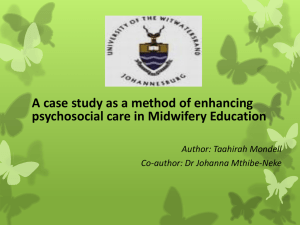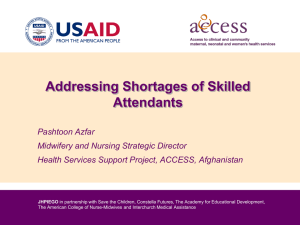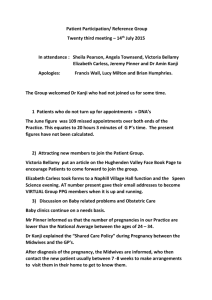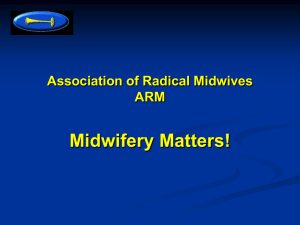Code of Ethics
advertisement
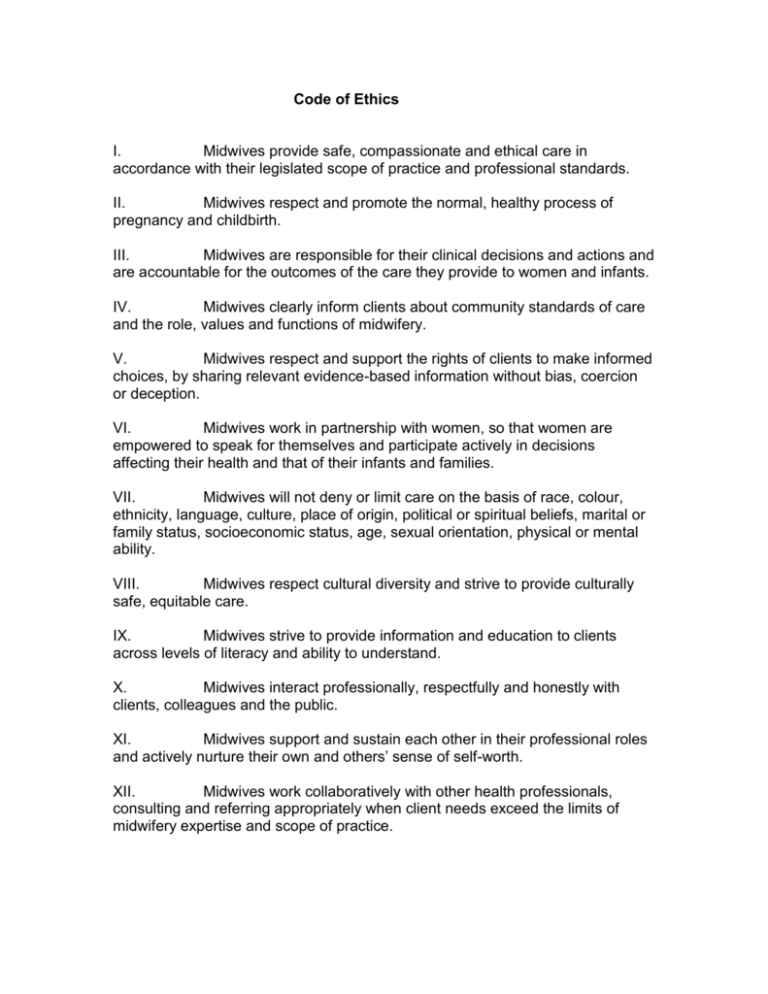
Code of Ethics I. Midwives provide safe, compassionate and ethical care in accordance with their legislated scope of practice and professional standards. II. Midwives respect and promote the normal, healthy process of pregnancy and childbirth. III. Midwives are responsible for their clinical decisions and actions and are accountable for the outcomes of the care they provide to women and infants. IV. Midwives clearly inform clients about community standards of care and the role, values and functions of midwifery. V. Midwives respect and support the rights of clients to make informed choices, by sharing relevant evidence-based information without bias, coercion or deception. VI. Midwives work in partnership with women, so that women are empowered to speak for themselves and participate actively in decisions affecting their health and that of their infants and families. VII. Midwives will not deny or limit care on the basis of race, colour, ethnicity, language, culture, place of origin, political or spiritual beliefs, marital or family status, socioeconomic status, age, sexual orientation, physical or mental ability. VIII. Midwives respect cultural diversity and strive to provide culturally safe, equitable care. IX. Midwives strive to provide information and education to clients across levels of literacy and ability to understand. X. Midwives interact professionally, respectfully and honestly with clients, colleagues and the public. XI. Midwives support and sustain each other in their professional roles and actively nurture their own and others’ sense of self-worth. XII. Midwives work collaboratively with other health professionals, consulting and referring appropriately when client needs exceed the limits of midwifery expertise and scope of practice. XIII. Midwives provide the best possible care to clients in all circumstances and environments. When unable to provide the necessary care, midwives make all reasonable efforts to find other care providers for clients. XIV. Midwives may not abandon the care of a woman in labour, nor refuse to attend a woman in labour, unless another appropriate health professional has been secured to provide the necessary care. XV. Midwives ensure that their professional judgment is not influenced by commercial considerations and will not accept any gift, favour or hospitality to endorse commercial products or services. XVI. Midwives will not accept any gift, favour or hospitality to provide preferential treatment to a client. XVII. Midwives ensure that client privacy is protected and that confidentiality is maintained except where disclosure is mandated by law. XVIII. Midwives openly acknowledge to clients and colleagues any conscientious objection or conflict of interest that may affect their professional practice or the client's right to informed choice. XIX. Midwives may refuse to participate in activities for which they hold deep moral opposition, with the understanding that personal beliefs should not deprive women of essential health services. XX. Midwives ensure that no action, omission or incapacity on their part causes harm or places clients at risk. XXI. Midwives protect clients and colleagues from harmful, unethical or incompetent practices by taking appropriate action that may include reporting mandated by law. XXII. Midwives maintain continuing competence and actively seek professional development throughout their midwifery career, integrating this development into their practice. XXIII. Midwives support the advancement of midwifery knowledge through research and peer review and participate in the education of students and peers. XXIV. Midwives participate in the development and implementation of policies and initiatives that promote the health of childbearing women and families. XXV. Midwives actively promote equitable access to health care and services that meet the needs of childbearing women and families.
![Letter to MPs re: maternal mental health report Dear [Name of MP] I](http://s3.studylib.net/store/data/006839335_1-7d7b3127aade7ad6d126565942ce75c1-300x300.png)
